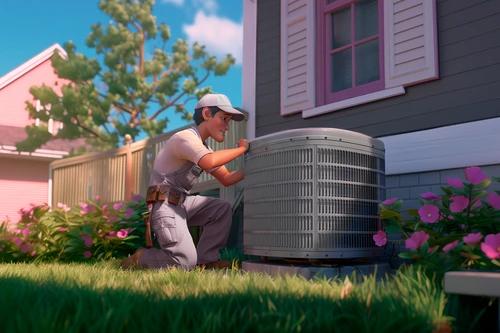How Long Do Air Conditioners Last in Miami, Fla.?

Understanding the Lifespan of Your AC in Miami’s Climate
If you live in Miami, you know how important your air conditioner is. With hot, humid weather nearly year-round, your AC works overtime to keep your home comfortable. But have you ever wondered how long air conditioners last in Miami, Fla.? While AC units typically last around 15-20 years in milder regions of the country, Miami’s climate and heavy usage can impact their lifespan. HVAC.com explains what affects your AC’s longevity and how you can extend its life.
Why AC Units Don’t Last as Long in Miami
In most areas, air conditioners get a break during cooler months. But in Miami, your AC is running almost constantly to combat the heat and humidity. This extra workload can lead to faster wear and tear on essential components like the compressor, coils, and blower motor.
Additionally, Miami’s salty coastal air can be tough on outdoor AC units. Salt in the air can cause corrosion, especially on the condenser coils, leading to reduced efficiency and potential system failure over time.
Average Lifespan of an Air Conditioner in Miami
So, how long can you expect your AC to last in Miami? On average, central air conditioners in South Florida have a lifespan of about 10-15 years. This is slightly shorter than the national average due to the intense heat, humidity, and salt exposure.
Tips to Extend the Life of Your AC in Miami
While Miami’s climate is tough on AC units, there are steps you can take to maximize your system’s lifespan:
1. Schedule Regular Maintenance
Routine maintenance is crucial for keeping your AC in top shape. Schedule professional tune-ups at least twice a year, ideally before summer and winter. Regular maintenance helps catch small issues before they turn into costly repairs.
2. Change Your Air Filters Regularly
Dirty air filters restrict airflow, making your AC work harder than necessary. In Miami, where ACs run almost constantly, you should change filters every 1-2 months to keep your system running efficiently.
3. Keep the Outdoor Unit Clean
Since Miami’s salty air can corrode metal components, it’s important to rinse off your outdoor unit with fresh water every few months. This helps remove salt buildup and prevents premature rusting.
4. Use a Programmable or Smart Thermostat
Reducing the strain on your AC can help extend its life. A programmable or smart thermostat allows you to raise the temperature slightly when you’re away, reducing unnecessary wear on the system.
5. Ensure Proper Insulation and Ventilation
If your home isn’t well-insulated, your AC has to work even harder to cool your space. Make sure windows, doors, and ducts are properly sealed to prevent cool air from escaping and warm air from getting in.
6. Don’t Ignore Repairs
If you notice strange noises, weak airflow, or rising energy bills, don’t wait to call a professional. Addressing minor repairs early can prevent major breakdowns and extend your AC’s lifespan.
7. Consider a Salt-Resistant Air Conditioner
Since Miami’s coastal air contains high levels of salt, corrosion is a major concern for outdoor AC units. If you live near the ocean, investing in a salt-resistant air conditioner can help extend your system’s lifespan.
8. Adjust Your Thermostat Appropriately
Setting your thermostat appropriately can help extend your AC system’s lifespan by reducing unnecessary strain on the unit. Keeping your thermostat at an optimal setting prevents the system from overworking, which can lead to faster wear and tear on critical components like the compressor and blower motor.
When to Replace Your Air Conditioner
Even with the best maintenance, there comes a time when replacing your AC is more cost-effective than repairing it. Here are some signs it might be time for a new system:
- Your AC is 10+ years old and experiencing frequent issues
- Your energy bills keep increasing despite regular maintenance
- You’re constantly calling for repairs and costs are adding up
- Your home isn’t cooling properly even after servicing the unit
If you’re facing multiple repair bills and your AC is nearing the end of its lifespan, upgrading to a newer, more efficient system can save you money on energy costs and improve indoor comfort.
